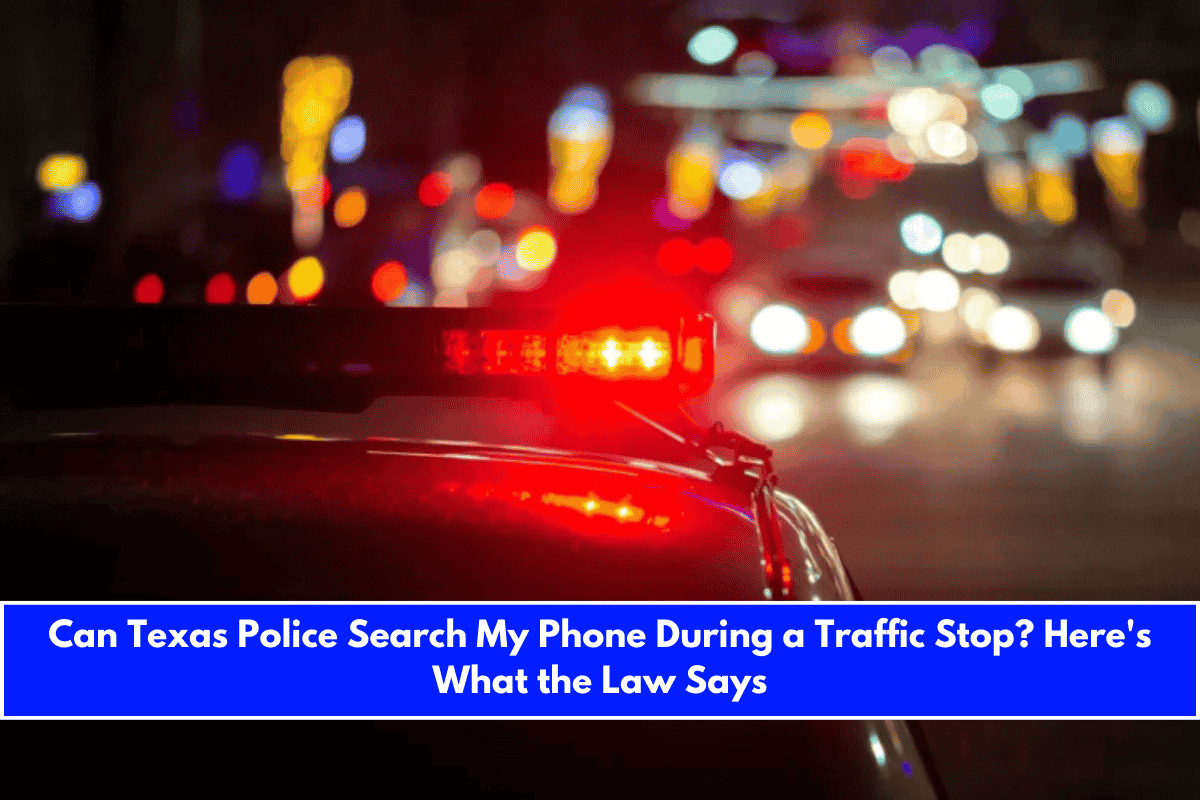In Texas, your cell phone is protected under both the Fourth Amendment of the U.S. Constitution and Article I, Section 9 of the Texas Constitution, which safeguard you from unreasonable searches and seizures.
This protection extends to your phone during a traffic stop, and police generally cannot search your phone without a warrant or your explicit consent.
General Rule: Warrant or Consent Required
- Police officers must have a judge-issued search warrant to search the contents of your phone, even if you have been arrested.
- You have the right to refuse an officer’s request to search your phone during a traffic stop. If you do not consent, the officer cannot lawfully search your device unless they obtain a warrant.
Exceptions: Exigent Circumstances
There are rare exceptions when police may search your phone without a warrant or consent. These “exigent circumstances” include situations where officers reasonably believe immediate action is necessary to:
- Prevent imminent danger or death
- Prevent the destruction of evidence
- Pursue a fleeing felon
- Protect property (such as stopping a burglary or fire)
These exceptions are uncommon during routine traffic stops and typically require the officer to demonstrate probable cause that such urgent conditions exist.
After Arrest: Still Protected
Even after an arrest, police in Texas still need a warrant to search your phone. The Texas Court of Criminal Appeals has upheld that your phone’s contents remain private unless a warrant is issued or a valid exception applies.
Information on Your Lock Screen
Texas courts have ruled that police cannot use information visible on your phone’s lock screen—such as incoming messages or notifications—as evidence without a warrant.
What Should You Do During a Traffic Stop?
- Remain calm and provide your driver’s license and registration.
- If asked to hand over or unlock your phone, you have the right to politely refuse unless the officer presents a valid search warrant.
- Do not consent to a search unless you are comfortable with officers accessing all the data on your device, as any evidence found can be used against you.
If Your Rights Are Violated
If police search your phone without a warrant, consent, or valid exigent circumstances, evidence obtained may be excluded from court proceedings. You should document the incident and consult an attorney to protect your rights and potentially challenge the legality of the search.
Summary Table
| Can Police Search Your Phone? | During Traffic Stop | After Arrest | With Consent | Exigent Circumstances |
|---|---|---|---|---|
| Without Warrant | No | No | Yes | Rare, specific cases |
| With Warrant | Yes | Yes | N/A | N/A |
Texas police cannot search your phone during a traffic stop without your consent or a warrant, except in rare and urgent situations. You have the right to refuse a search, and any evidence obtained unlawfully may be excluded in court.
Sources:
- https://wesruckerlaw.com/police-search-cell-phone-without-warrant-houston/
- https://www.pitoniaklaw.com/faq/can-police-search-your-phone-in-texas/
- https://www.theshapirolawfirm.com/blog/2023/04/can-police-search-my-phone-without-a-warrant/
- https://versustexas.com/blog/can-police-search-my-phone/
- https://www.lugolawfirm.com/blog/2024/04/can-the-police-freely-search-your-phone-in-texas/











Leave a Reply